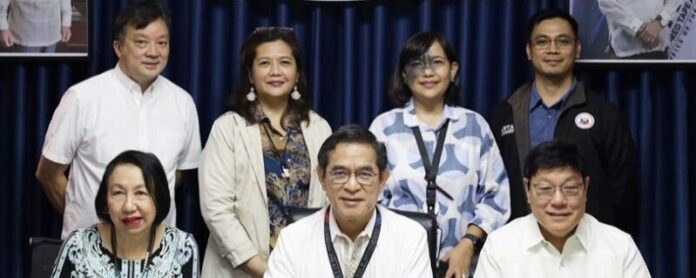
-
The Anti-Red Tape Authority will help harmonize overlapping mandates of government agencies related to the processed food sector
-
The Export Development Council-Networking Committee on Agri-Policy tapped ARTA’s for solutions to ease regulatory constraints and bottlenecks encountered by the processed food sector
-
ARTA’s Better Regulations Office and Compliance Monitoring and Evaluation Office will spearhead the review
-
A joint administrative order will be crafted to address concerns about the overlapping mandates of regulatory agencies
The Anti-Red Tape Authority (ARTA) will assist in streamlining processes involved in the import and export of processed foods.
The Export Development Council-Networking Committee on Agri-Policy (EDC-NCAP), in a meeting on January 25, sought ARTA’s help in easing regulatory constraints and bottlenecks that the processed food sector has encountered in transacting with concerned government agencies.
The functions of EDC, created by virtue of Republic Act 7844 or the Export Development Act of 1994, include identifying the main bottlenecks, problem areas and constraints in all areas/sectors/activities that influence the development of exports, and mandate specific departments and agencies to attend to such bottlenecks and problems.
“The concerns and issues raised and brought to ARTA’s attention will be addressed by the Authority’s streamlining programs, as well as its digitalization initiatives in collaboration with the Department of Information and Communications Technology (DICT),” ARTA director general Ernesto Perez said in a statement.
“These are spearheaded by BRO [Better Regulations Office] and CMEO [Compliance Monitoring and Evaluation Office], as enabled by the Ease of Doing Business Law,” Perez said.
ARTA’s BRO will lead the review of regulations to avoid imposing undue burden on stakeholders. The CMEO, meanwhile, will head the monitoring of mandatory compliance by the concerned agencies with a particular provision of the updated Citizen’s Charter.
The charter provision mandates the agencies to prepare an accurate list of requirements and processing times for stakeholders’ transactions, under Republic Act No. 11032 or the Ease of Doing Business and Efficient Government Service Delivery Act of 2018.
Perez also noted the eventual integration of trade regulatory government agencies (TRGA) in the TradeNet to allow a more simplified and end-to-end processing of licenses and permits through a single, online portal.
TradeNet is a platform for the automated and integrated licensing, permit, clearance, and certification system for TRGAs. It also serves as the country’s National Single Window, the platform required to connect to the Association of Southeast Asian Nations Single Window.
“As for concerns regarding the overlapping mandates in the regulatory agencies, it will be addressed through a Joint Administrative Order (JAO) after a thorough consultation with the agencies,” Perez said.
In relation to this, ARTA said it will hold a series of consultation meetings with the involved regulatory agencies in the coming weeks.




